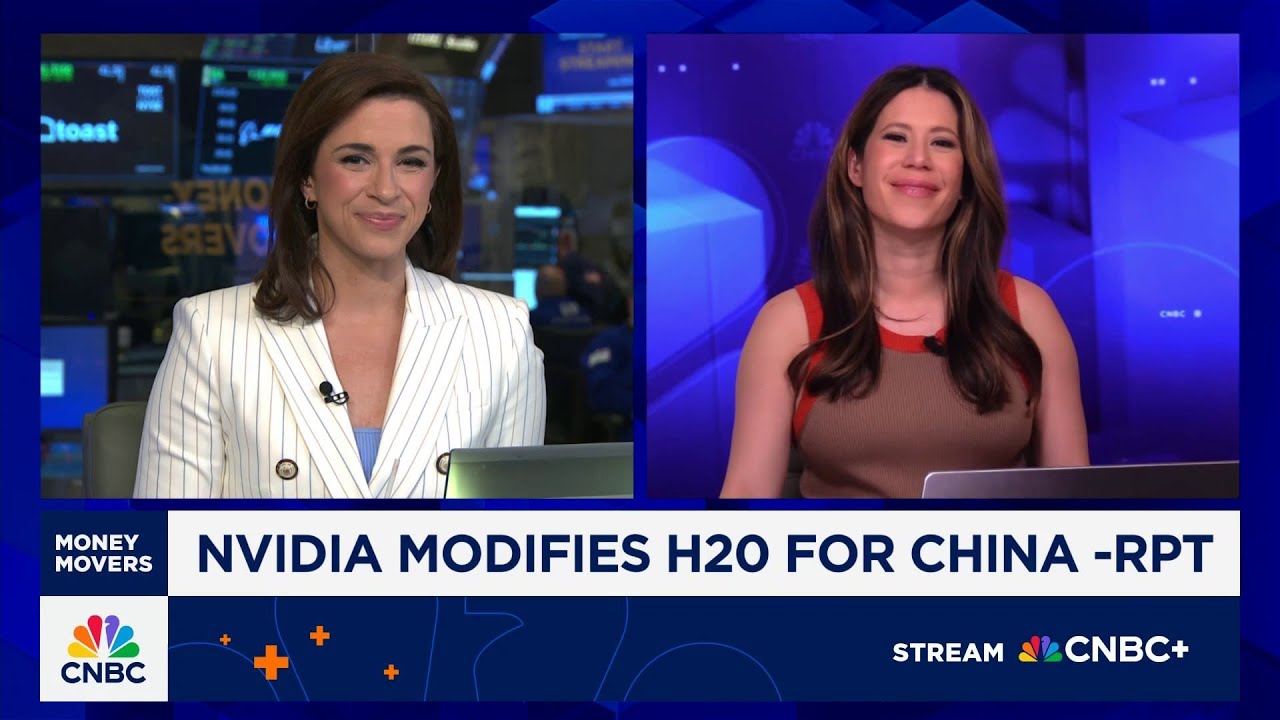The video explains how Nvidia is modifying its H20 chips to comply with China’s export restrictions amid evolving U.S. policies, highlighting the challenges of enforcing such controls effectively. It also discusses industry concerns that current restrictions may be counterproductive, potentially hindering U.S. competitiveness and allowing China to advance its AI and tech industries independently.
The video discusses Nvidia’s strategic move to modify its H20 chips to navigate China’s export restrictions. Nvidia plans to release a downgraded version of the H20 chip to avoid falling afoul of U.S. export controls, which have become more stringent recently. This adjustment comes after the original H20 chip managed to bypass U.S. regulations for over a year, highlighting the ongoing challenges in enforcing export restrictions effectively. Nvidia’s actions reflect a broader industry trend of companies trying to adapt to shifting regulatory landscapes while maintaining access to the Chinese market.
The White House’s stance on AI export controls remains unclear, creating a complex environment for tech companies. While the Trump administration previously eliminated the AI diffusion rule, it has yet to establish a clear replacement policy. This ambiguity has allowed companies like Nvidia to operate in a gray area, but it also raises questions about the future of U.S. AI dominance and the effectiveness of current export restrictions. The lack of clarity from policymakers contributes to market uncertainty and complicates strategic planning for tech firms.
Industry voices, including David Saks and former Google CEO Eric Schmidt, are increasingly acknowledging that U.S. restrictions have not prevented Chinese tech advancement. Schmidt warns that Chinese companies like TikTok and Huawei are gaining ground, suggesting that containment strategies may be ineffective. Instead of halting Chinese technological progress, restrictions seem to have pushed it outside U.S. control, allowing China to develop its own capabilities and accelerate its AI and tech industries independently.
There is a growing recognition that the current approach of export bans, tariffs, and licensing rules may be counterproductive. Saks, who is close to the Trump administration, is beginning to see that these measures might be hindering U.S. competitiveness rather than protecting it. This shift in perspective could signal a potential change in policy, possibly leading to fewer restrictions and a more open environment for AI development. Such a shift would be positive for the AI industry and investors, who have faced a challenging year amid ongoing uncertainties.
Despite these developments, the market remains highly uncertain due to the geopolitical and regulatory complexities surrounding chip exports. Chips have become a key leverage point in broader trade negotiations, making policy decisions unpredictable. While Nvidia is finding ways to operate within the current gray area, investor confidence is subdued because of the persistent ambiguity. The overall environment continues to be characterized by flux, with no clear indication of when or how policies might stabilize, leaving the future of AI trade and U.S.-China tech relations uncertain.
